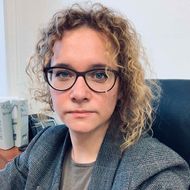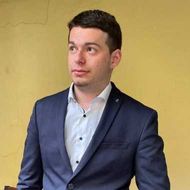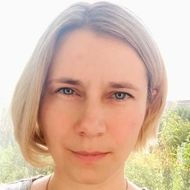- A
- A
- A
- ABC
- ABC
- ABC
- А
- А
- А
- А
- А
- HSE University
- Faculties
- Faculty of Social Sciences
- School of Psychology
- News
- 'I Try to Say Surprising Things, to Keep Students on Their Toes'
-
Education
-
The School
- About
-
Laboratories
-
- The Scientific-Educational Laboratory of Ability Psychology
- Center for Sociocultural Research
- International Laboratory of Positive Psychology of Personality and Motivation
- Laboratory for Cognitive Research
- Cognitive Psychophysiology Laboratory
- Vision Modelling Laboratory
- Laboratory for the Neurobiological Foundations of Cognitive Development
-
- Partners
- Staff Members
- International Cooperation
Phone: +7 (495) 772-95-90 *15366
Email: dekpsy@hse.ru
Address: 101000, Moscow, Armyanskiy per. 4, c2
Address for correspondence: 20 Myasnitskaya Ulitsa Moscow 101000 (School of Psychology)
In press
Popyvanova A., Pomelova E., Bredikhin D. et al.
IEEE, 2024.
Zaidi S. G., Orazmukhametova L., Zahra S. K. et al.
TPM - Testing, Psychometrics, Methodology in Applied Psychology. 2025. Vol. 32. No. S8. P. 2025-2035.
Tunkevichus O., Bagrationi K.
In bk.: The Proceedings of the 20th European Conference on Innovation and Entrepreneurship. Vol. 20. Iss. 1. Academic Conferences International Limited, 2025. P. 759-766.
Ivanova M., Germanova K., Petelin D. et al.
Biorxiv. 005140. Cold Spring Harbor Laboratory, 2024
The School promotes cutting-edge research, multidisciplinary studies, education in English. We are increasing the number of courses in English all the time and have started two English-speaking Master’s Programs. Our researchers have access to Eye trackers, TMS, multi-channel EEG, MEG and fMRI techniques.
The School also aims to train psychologists, who can apply their knowledge in the fields of economics, banking, human resources management, organizational development, ecopsychology and team-building.

'I Try to Say Surprising Things, to Keep Students on Their Toes'
.jpg) Kennon M. Sheldon is Professor of Psychological Sciences at the University of Missouri (USA), a leading expert in psychology of motivation and goals and one of the 20 most quoted psychologists in the USA. He is Academic Supervisor of the HSE’s new Laboratory of the Positive Psychology of Motivation and Personality. In an interview for the HSE English Language news service, News Editor Anna Chernyakhovskaya asked Professor Sheldon how his cooperation with the HSE began.
Kennon M. Sheldon is Professor of Psychological Sciences at the University of Missouri (USA), a leading expert in psychology of motivation and goals and one of the 20 most quoted psychologists in the USA. He is Academic Supervisor of the HSE’s new Laboratory of the Positive Psychology of Motivation and Personality. In an interview for the HSE English Language news service, News Editor Anna Chernyakhovskaya asked Professor Sheldon how his cooperation with the HSE began.
— Dmitri Leontiev (Professor of Positive Psychology and Life Quality Research Team: Laboratory Head and Member of the HSE Academic Council) emailed me around Christmas time and suggested the project. I thought it sounded interesting and agreed to be the senior international scientist in the project, should it be funded. I had spoken to Dmitri a couple of times before, at international conferences concerning Self-determination theory, the theory upon which I base much of my work. I knew he had sympathy for the theory, but also ideas for improving it; this intrigued me.
— What do you find interesting as a lecturer and researcher working in Moscow?
—So far (after 1 week), I like the fact that the research group is well able to understand me, and is very interested and responsive to the ideas I am sharing. They treat me very respectfully, and already know most of the background information necessary to follow my presentations.
— What are your first impressions?
— Very good so far. I am looking forward to next week, when we begin to discuss our project more concretely.
— How do you see the further development of your cooperation with the HSE?
— I do not know where it will go, which is one of the interesting things! What I would like to do is understand Dmitri's theoretical perspective better, and then help his research group to design studies to test that theory and compare it to other theories, studies that are ultimately publishable in high quality western journals.
— What's your teaching method? How do you inspire and encourage students?
— I try to explain concepts using spontaneous examples that occur to me only in the moment of speaking. I also try to say surprising things, to keep students on their toes!
— How do you like being in Moscow? What is nice and what is difficult?
— My wife Melanie who is an assistant teaching professor in psychology at Missouri, the same department as me (interested in evolutionary, not motivational, psychology) and I are learning our way around. So far, Moscow is very interesting to us, a European city that is not quite European. We also find it to be a little dirty and run-down, but many big cities around the world have this characteristic.
From June 3 – 18, 2014, you can hear Kennon M. Sheldon reading a series of lectures on the Positive Psychology of Motivation at the HSE. The lectures are open to all students and staff.
- About
- About
- Key Figures & Facts
- Sustainability at HSE University
- Faculties & Departments
- International Partnerships
- Faculty & Staff
- HSE Buildings
- HSE University for Persons with Disabilities
- Public Enquiries
- Studies
- Admissions
- Programme Catalogue
- Undergraduate
- Graduate
- Exchange Programmes
- Summer Schools
- Semester in Moscow
- Business Internship
- © HSE University 1993–2025 Contacts Copyright Privacy Policy Site Map
- Edit


